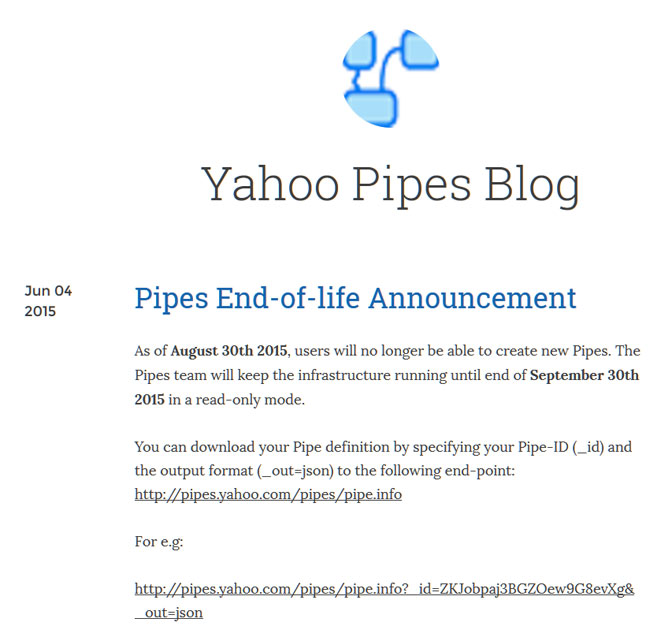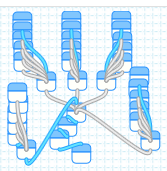
Have been getting incoming links from Yahoo! Pipes for several years without really knowing what it was, and now it's leaving us. Another discarded internet dream.
Via dump.fm user Bamboo I learned this about Yahoo! Pipes:
11:41 AM Sat 7/25 -- by bamboo
pipes was this weird early graphical thing where you could connect together different RSS feeds
11:41 AM Sat 7/25 -- by bamboo
and manipulate them
11:41 AM Sat 7/25 -- by bamboo
in kind of a max/msp type environment
11:43 AM Sat 7/25 -- by bamboo
YUI was their javascript library circa 2007
11:45 AM Sat 7/25 -- by bamboo
...you could take RSS feeds from [e.g.] boing boing techdirt and slashdot and then pipe them together filtering for posts mentioning "microsoft" and then dump them into their own rss thing
11:45 AM Sat 7/25 -- by bamboo
posts mentioning "ruby on rails" circa 2007
The DIY aesthetic this represents ("assemble your own news feeds, your way!") was gradually replaced by "apps" and complete reliance on developers to come up with an "app" that fit your newsgathering needs. Also a kind of general laziness of people using Facebook and Twitter for news. Pipes had a nice graphic, though:

Update: Just noticed, scrolling back through old Nasty Nets posts, that Peter Baldes posted about Yahoo! Pipes in early 2007.
